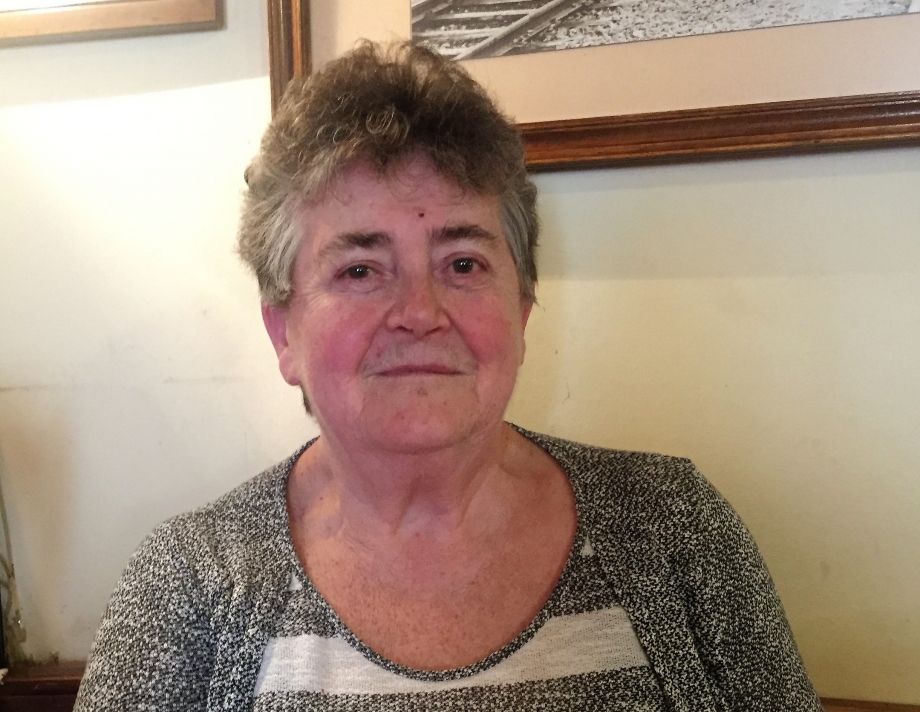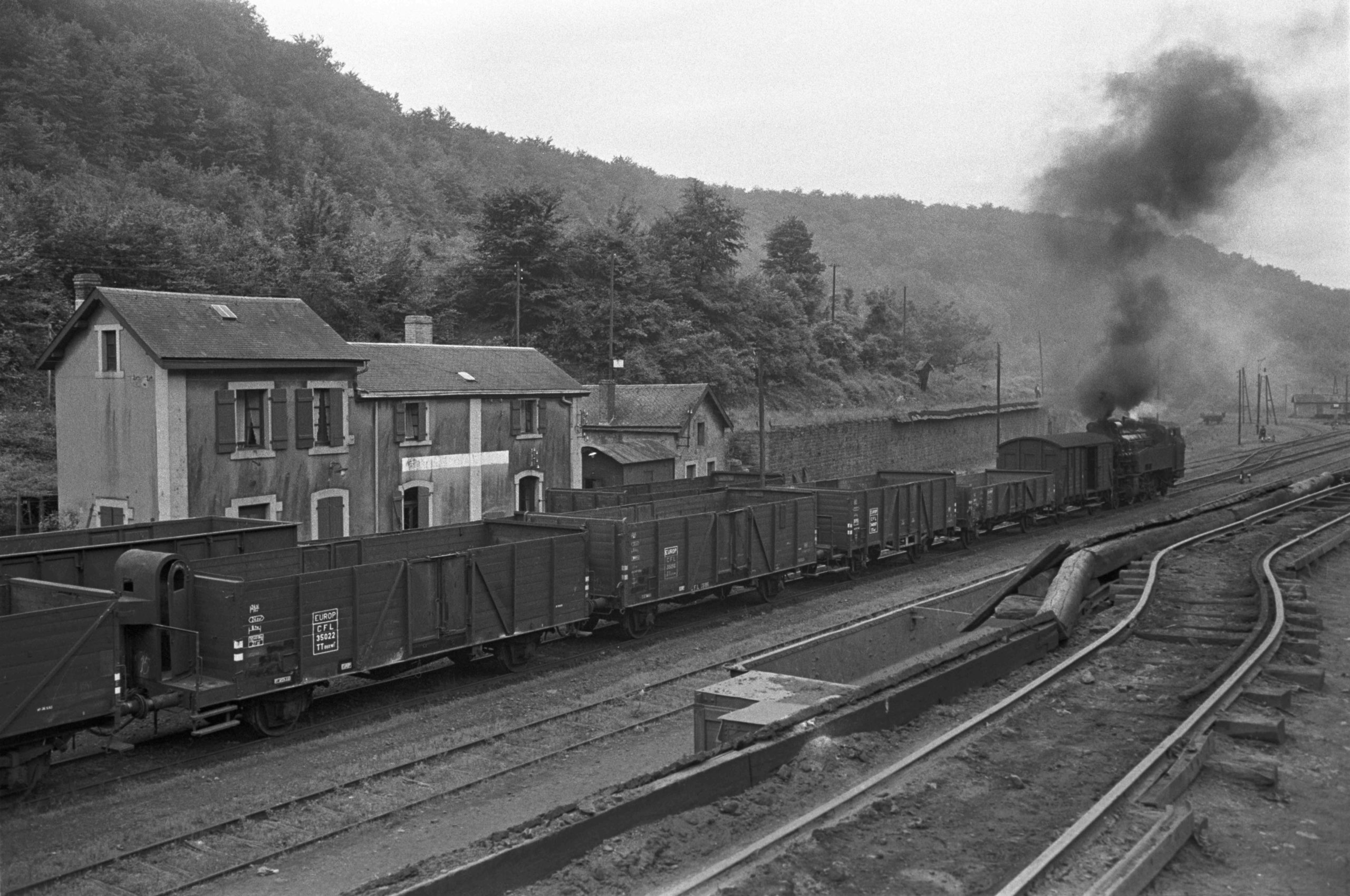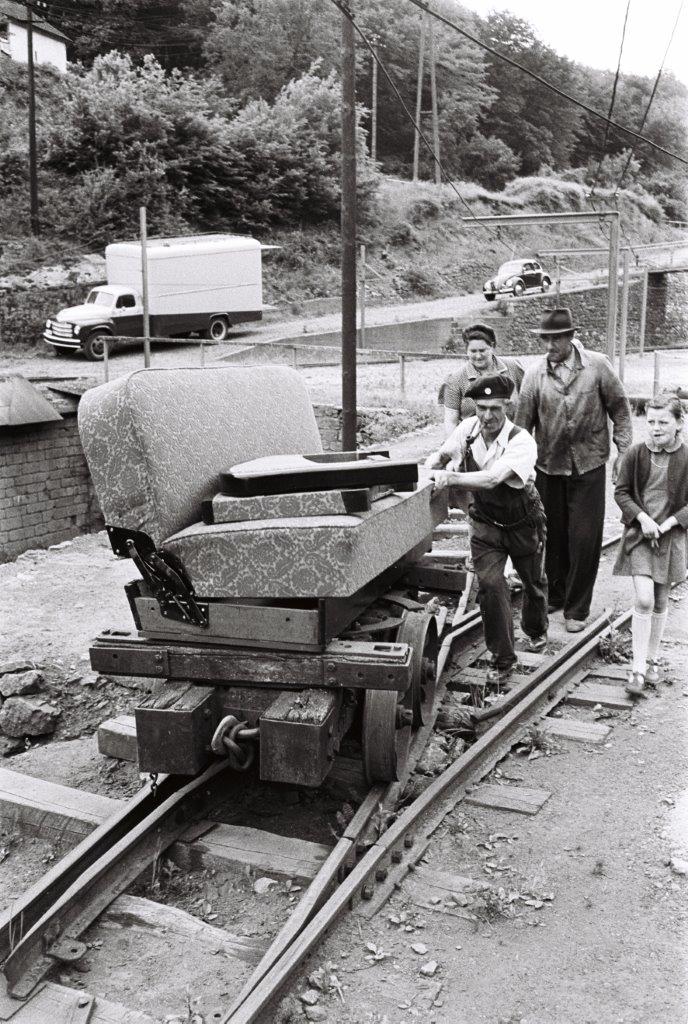
In September 1946, at the age of 9 months, Marie-Louise arrived at Fond-de-Gras because her father, who works as a railroad hooker for the CFL, has just been transferred there and benefits from an accommodation provided by employer in the station, which is still there today.
Marie-Louise spent her childhood and her youth in Fond-de-Gras, leaving the valley only once getting married.
A short time ago, we had the acquaintance of this charming lady, who was kind enough to share her memories of Fond-de-Gras with us.
So, Marie-Louise lives with her parents, her brother, and her sister in the station building. Four rooms, a living room and a kitchen. The room that is now used by the Train 1900 to manage the train traffic was once her father’s office.

Fond-de-Gras station, childhood home of Maire-Louise Hopp © Photothèque de la Ville de Luxembourg, Photo Théo Mey, 1953

Needless to say, there is no running water and therfore no toilets in the building at the time. But a spring runs at the back, “the best water I could drink” says Marie-Louise, adding that sometimes her mother perfumes it by adding home-made jam prepared with fruit from the garden. The present terrace, to the left of the station, is then a vast vegetable garden surrounded by fruit trees. To the right of the building, are small stables with pigs and rabbits. The cellar serves as a smoking room and a storage room for milk and butter.
In 1966, Marie leaves Fond-de-Gras to get married. However, her parents remain, even after the mines and railway closed. She regularly visits her parents with her own family. It isn’t until 1983 after the decease of her mother that her father also leaves Fond-de-Gras.
As we talk, Marie-Louise mentions that about 11 other families lived in Fond-de-Gras at the same time. But all these buildings have disappeared since, up to the remains of some foundations.
Furniture delivery to Fond-de-Gras © Photothèque de la Ville de Luxembourg, Photo Théo Mey, 1953
As we listen to Marie-Louise, we are struck by the cheerful tone of her stories of what must have been a happy time. Everyday life in the valley was not a bed of roses, but there was a strong solidarity between the residents and the workers. Winters are hard in Fond-de-Gras, and when it snows heavily, it is not easy to get to Pétange or Rodange; in such cases, the machinists are happy to give passengers a lift.
At that time, most places in Fond-de-Gras cannot be reached by car. Marie-Louise also remembers how new furniture once was delivered: A mining railway went along the back of her house on the same level as the roof. And so a mining train brought the furniture behind the house, where it was then transported into the house via a ladder through an opening in the roof.
Today, Marie-Louise likes to come to Fond-de-Gras and reminisce on the terrace of the café-restaurant “Bei der Giedel”.



